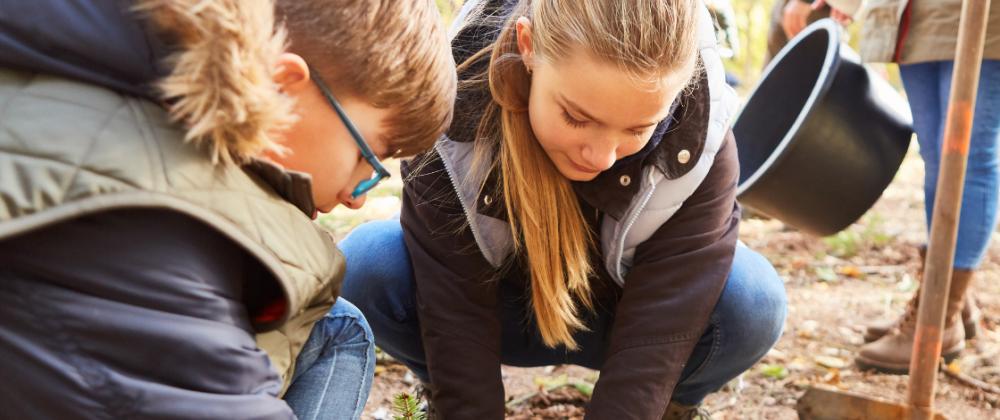New voluntary standards for non-school alternative provision

Alongside Keeping Children Safe in Education the DfE have released voluntary national standards for non-school alternative provision (formerly known as unregistered alternative provision).
The government are looking to build on the current AP guidance and well-established approved lists and quality assurance frameworks already in place in many areas. The standards are written for local authorities, providers, schools and, interestingly, parents who might use non-school AP to supplement elective home education. The Government’s focus is illustrated in the standards examining safeguarding, health and safety and admission processes before finally looking at the quality of education.
Part 1 covers safeguarding.
DSLs should ensure their arrangements for commissioning non-school AP cover the following (part 1 of the standards):
Schools using non-school AP remain responsible for safeguarding of their children
Schools should obtain written confirmation from the provider that appropriate safeguarding checks have been undertaken on people working at the setting (even if the setting is on an LA ‘approved list’)
Providers should:
1.1 Undertake safeguarding employment checks and keep a Single Central Record – these checks are set out in section 1.1
1.2 Annually review their safeguarding policies including
A child protection policy (including where to seek help and escalation),
A behaviour policy (including bullying/cyberbullying/discriminatory bullying and a policy on reasonable force) and
A staff behaviour policy (low level concerns, allegations and whistleblowing)
1.3 Ensure where concerns arise staff can respond accordingly, then providers should discuss this with the commissioning school’s DSL and/or the LA commissioning lead and agree in writing whether the provider or commissioner (e.g. placing school) is taking action forward. The commissioner should be routinely updated and all parties (including children, parents, carers and staff) should be advised of the setting’s action and their right to go to the commissioning school or children’s social care team (if appropriate) should they feel their concern is not being acted on. Policies should allow for concerns to be raised anonymously and all concerns should be documented and shared with school or local authority commissioners, the child’s family, and any other appropriate local or national authorities.
1.4 Provide an induction to the policies, ensure understanding of how to respond to concerns and deliver annual safeguarding training to permanent staff. The provider should weigh up what to share with temporary staff, volunteers and contractors
1.5 Have a named child safeguarding lead (and deputy) with appropriate, documented, biannual training. This does not have to be a senior leader, but the role carries a significant level of responsibility.
1.6 Ensure the provider’s own sites are secure and suitable. The site should be restricted to children receiving provision, the provider’s own staff and supervised visitors with appropriate arrangements to check people in and out. Where the child’s learning takes place in a shared purpose setting, in public, in a private home, in an outdoor environment or the community there should be risk assessments undertaken which look at the child’s needs and local factors that might affect the provision. Children should be supervised by suitable staff in non-secure environments.
Part 2 considers health and safety.
Part 3 provides guidance on admissions, support and guidance.
DSLs will want to ensure they provide key relevant information and any information pertinent to child safeguarding to help understand and meet children’s needs and agree arrangements when concerns arise around safeguarding or attendance (schools placing children in non-school AP remain responsible for children at these times – providers should ideally be advising commissioners within 30 minutes if a child is absent).
Absences should be followed up urgently to ascertain the reason, identify whether the absence is approved or not and where necessary ensure proper safeguarding action is taken. Providers should have agreements in place with commissioners to decide who is best placed to take forward any actions.
Part 4 explores the quality of education.
Safeguarding Network is well placed to support non-school alternative provision with the new requirements – please feel free to share this post. Our membership includes:
Individual initial support and advice, with the opportunity to upgrade to supervision for child safeguarding leads if required.
An in-house staff training pack and monthly bite-size staff training sessions that fit into a team meeting throughout the year.
Discounts on suitable training for child safeguarding leads.
Independent support with investigations and whistleblowing.
Discounts on Non-school Alternative Provision safeguarding reviews with an on-site visit and detailed report.
Sign up for our free safeguarding Bulletin
Interested in membership?
Join over 3,500 DSLs and nearly 40,000 staff in 1,500 education settings receiving high value support, consultancy and the tools you need to keep the children in your care safe.
Shopping cart
Action Required
